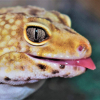Lasius claviger and Lasius umbratus tend to hibernate before trying to find a host colony in the spring, although they don't necessarily have to. Most Lasius social parasites will try to get themselves into a colony soon after they fly.
Edited by Batspiderfish, January 13 2018 - 8:10 PM.
-
Nathant2131 and FeedTheAnts like this
If you've enjoyed using my expertise and identifications, please do not create undue ecological risk by releasing your ants. The environment which we keep our pet insects is alien and oftentimes unsanitary, so ensure that wild populations stay safe by giving your ants the best care you can manage for the rest of their lives, as we must do with any other pet.
Exotic ants are for those who think that vibrant diversity is something you need to pay money to see. It is illegal to transport live ants across state lines.
----
Black lives still matter.















